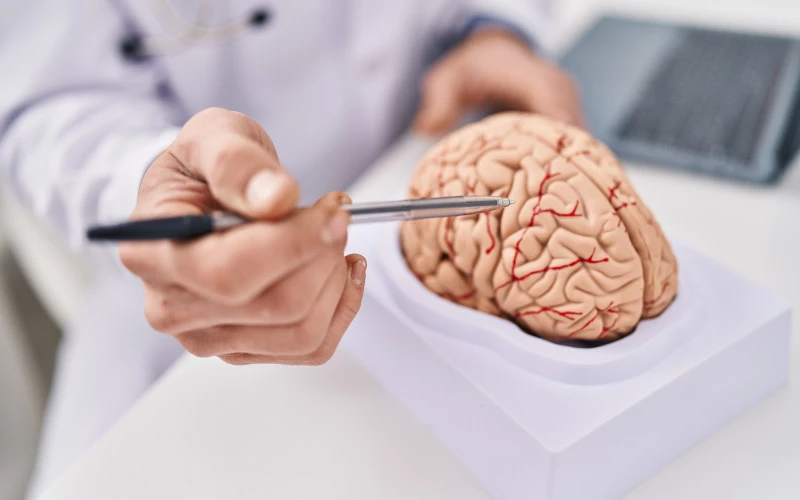Psych Therapy: A Comprehensive Guide to Techniques and Results

Cognitive-Behavioral Treatment
Cognitive-Behavioral Therapy (CBT) is a commonly made use of psychotherapeutic method that concentrates on recognizing and modifying inefficient reasoning and behavior patterns. Established in the 1960s by Aaron T. Beck, CBT incorporates behavioral and cognitive concepts to resolve numerous mental health and wellness problems, consisting of depression, anxiety, and stress-related disorders.
Methods such as cognitive restructuring, exposure therapy, and skill-building workouts are frequently utilized. Cognitive restructuring involves tough and changing unfavorable thought patterns, while direct exposure therapy aims to lower concern and stress and anxiety through gradual exposure to feared objects or circumstances.
Evidence-based research study supports the efficiency of CBT for a large range of psychological problems - Best Psychologist in Delhi. Its emphasis on ability acquisition and self-help strategies equips clients to proceed progress independently after treatment wraps up. The adaptability and efficiency of CBT have made it a keystone in contemporary psychotherapeutic technique
Psychodynamic Methods
Rooted in the very early theories of Sigmund Freud, psychodynamic strategies focus on discovering the unconscious mind and its impact on behavior and emotions. These approaches aim to reveal hidden ideas and sensations that may be driving maladaptive habits and psychological distress. Central to this method is the principle of inner dispute, often coming from unresolved past experiences, specifically those from childhood.
Therapists using psychodynamic strategies employ a number of vital methods, consisting of cost-free association, where patients are motivated to talk freely to expose subconscious material, and dream analysis, which translates the unrealized content of dreams. Furthermore, the exploration of transference and countertransference characteristics within the healing partnership is crucial. These interactions can offer understandings right into the person's inner globe and relational patterns.
Psychodynamic treatment is typically longer-term compared to other modalities, providing a detailed and deep understanding of the person's mind. Research study suggests that it can be especially efficient for complicated mental health and wellness problems, such as character disorders and chronic anxiety. By promoting self-awareness and emotional insight, psychodynamic therapy looks for to bring subconscious product to awareness, allowing individuals to achieve long lasting and meaningful change in their lives.
Humanistic Strategies
Structure on the structures laid by psychodynamic methods, humanistic techniques offer a distinctive viewpoint concentrated on specific potential and self-actualization. Coming from the mid-20th century, these strategies prioritize the fundamental benefits and growth potential of people, highlighting a holistic sight of human experience. Secret figures such as Carl Rogers and Abraham Maslow have actually substantially influenced this therapeutic strategy, which includes methods like client-centered therapy and Gestalt treatment.
Client-centered therapy, created by Rogers, plays a critical duty in humanistic methods. The specialist's role is even more of a facilitator than an authority, urging clients to harness their internal sources for healing.
Gestalt treatment, another important humanistic strategy, emphasizes present moment awareness and the combination of body and mind. By concentrating on the "here and now," customers acquire better insight into their present feelings and actions. Techniques such as role-playing and assisted visualization are often utilized to assist customers obtain a deeper understanding of themselves, ultimately causing boosted self-awareness and fulfillment.
Integrative Therapies
Integrative therapies represent a synthesis of different healing strategies tailored to meet the distinct requirements of each customer. This approach acknowledges the complexity of human psychology and the diverse nature of psychological health and wellness concerns. By incorporating components from various colleges of psychiatric therapy-- such as cognitive-behavioral treatment (CBT), psychodynamic treatment, and humanistic strategies-- integrative treatments supply an even more all natural and adaptable therapy standard.
Experts of integrative treatment analyze each customer's certain requirements, signs, and personal background to design a tailored therapy plan. This personalized approach enhances the possibility for healing success by addressing the origin of emotional distress and promoting total wellness. Techniques could consist of mindfulness workouts, cognitive restructuring, and psychological handling, each picked to target different aspects of the client's problems.
Moreover, integrative therapies stress the restorative partnership, viewing the client-therapist bond as a vital component of efficient treatment. This connection promotes a helpful setting where clients feel risk-free to explore and resolve their concerns. The versatility of integrative treatments makes them ideal for a broad series of problems, including anxiety, clinical depression, trauma, and social problems, therefore enhancing their applicability and performance in diverse professional settings.

Determining Therapy Results
Evaluating the efficiency of psychotherapy is vital for both clinicians and customers to make certain that the treatment is generating the preferred outcomes. To attain this, various techniques and devices are employed to determine treatment outcomes great site systematically. Standard assessment instruments, such as the Beck Anxiety Supply (BDI) and the Generalized Anxiety Condition 7 (GAD-7), you could look here give quantitative data on signs and symptom severity and changes gradually.
In enhancement to standardized tools, qualitative techniques like customer self-reports and clinical interviews use beneficial insights into the personal experiences and viewed development of customers. Regularly scheduled assessments, typically at the start, axis, and end of treatment, help in tracking the trajectory of improvement or recognizing locations requiring change.
Outcome measurement is not limited to symptom reduction; it likewise includes practical enhancements in day-to-day life, such as far better social partnerships, raised job productivity, and enhanced total health. Modern advancements in digital health have presented mobile applications and on-line systems that assist in real-time tracking and comments, even more fine-tuning the assessment procedure.
Inevitably, a thorough technique to determining therapy outcomes ensures that healing treatments are efficient, effective, and tailored to satisfy the private needs of clients, therefore enhancing the general therapeutic experience.
Verdict
Humanistic techniques focus on individual growth and self-actualization, while integrative therapies incorporate multiple techniques for customized therapy plans. Examining treatment outcomes with standard analyses and qualitative methods ensures a thorough understanding of performance, eventually leading clients towards enduring mental wellness improvements.
From the organized technique of Cognitive-Behavioral Treatment (CBT) to the deep exploration of the navigate to this site unconscious in psychodynamic therapy, each technique brings unique benefits. Its emphasis on ability acquisition and self-help strategies equips clients to proceed progression independently after treatment wraps up (Best Psychologist in Delhi). Secret numbers such as Carl Rogers and Abraham Maslow have actually dramatically affected this healing method, which includes techniques like client-centered therapy and Gestalt therapy
